Have you ever been cruising down the road when your car suddenly feels like it’s lost its rhythm? Maybe the engine sputters, or your car starts shaking as if it’s caught a cold.
If this sounds familiar, you’re likely experiencing an engine misfire. But what exactly is an engine misfire, and why does it happen?
More importantly, how can you fix it and prevent it from happening again? Don’t worry—we’re here to break it all down for you in simple terms.
Table of Contents
What is an Engine Misfire?
Let’s start with the basics. An engine misfire occurs when one or more cylinders in your engine fail to fire properly. Think of your engine as a well-coordinated orchestra.
Each cylinder plays its part to produce smooth, efficient power. When a cylinder misfires, it’s like an instrument hitting the wrong note. The result? Your engine doesn’t run as smoothly or efficiently as it should.
You might notice several signs of an engine misfire. These can include:
- A rough idle.
- A loss of power during acceleration.
- A blinking or steady check engine light.
- Unusual vibrations or shaking.
Misfires can happen intermittently or persistently, depending on the underlying issue. Either way, it’s a problem you shouldn’t ignore because it can lead to more serious damage over time.
What Causes Engine Misfire?
Understanding the root cause of a misfire is the first step toward fixing it. Let’s dive into some of the most common culprits.
- Faulty Spark Plugs or Ignition Coils: The air-fuel combination in your engine is ignited by spark plugs and ignition coils. Regular maintenance is necessary because misfires are caused by worn spark plugs or failed coils.
- Fuel System Issues: For optimal performance, your engine need the proper fuel supply. Misfires can result from problems that upset this equilibrium, such as a filthy filter, a malfunctioning pump, or an obstructed injector.
- Air Intake Problems: Engines also need a precise amount of air to mix with the fuel. If your air filter is clogged, your intake manifold has a leak, or your mass airflow sensor is malfunctioning, the balance gets thrown off. This imbalance can cause your engine to misfire.
- Compression Issues: Combustion requires compressing the air-fuel mixture in the cylinder. Issues like worn piston rings, a blown head gasket, or valve problems can cause low compression, leading to misfires.
- Sensor Failures: Modern engines use sensors to optimize performance. Faulty oxygen, crankshaft, or camshaft sensors can mislead the ECU, disrupting timing and causing misfires.
- Bad Timing: If your engine’s timing is off, the spark plugs may fire at the wrong moment. This can happen due to a worn timing belt or chain, or a problem with the ECU. Bad timing can lead to misfires and, in some cases, serious engine damage.
How to Fix Engine Misfire?
Now that you know what causes a misfire, let’s talk about how to fix it. The exact solution will depend on the root cause, but here are some general steps you can take.
1. Diagnose the Problem
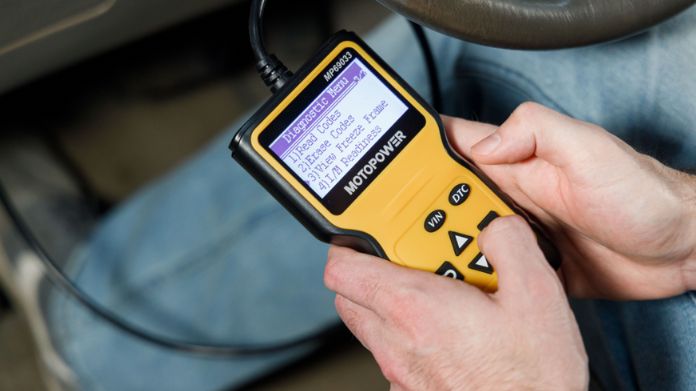 To begin, read any issue codes that are saved in the computer of your automobile using an OBD-II scanner. You may find the answers to these codes.
To begin, read any issue codes that are saved in the computer of your automobile using an OBD-II scanner. You may find the answers to these codes.
A P0301 code, for instance, denotes a misfire in cylinder 1. It will save you time and effort to identify the particular cylinder or problem.
2. Inspect Spark Plugs and Ignition Coils
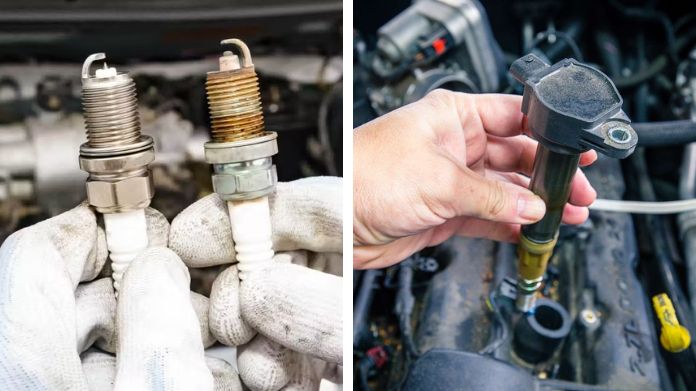 Spark plugs are a common source of misfires. Remove them and check for signs of wear, such as carbon buildup, fractures, or a damaged electrode.
Spark plugs are a common source of misfires. Remove them and check for signs of wear, such as carbon buildup, fractures, or a damaged electrode.
Replace any spark plugs that are broken or worn out. If the spark plugs appear to be good but the misfire persists, check the ignition coils with a multimeter. Faulty coils should be changed right away.
3. Check the Fuel System
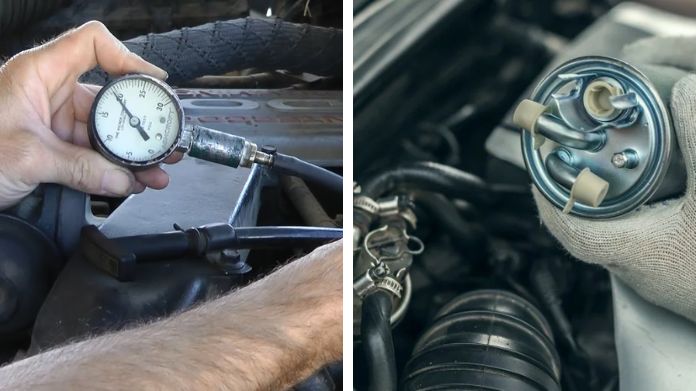 Misfires are frequently caused by problems with fuel supply. Check for obstructions in the fuel injectors first.
Misfires are frequently caused by problems with fuel supply. Check for obstructions in the fuel injectors first.
They may be professionally cleaned or cleaned using a fuel injector cleaner. If you suspect that the fuel filter and gasoline pump aren’t working properly, replace them. For engines to run, a steady flow of fuel must be maintained.
4. Examine the Air Intake System
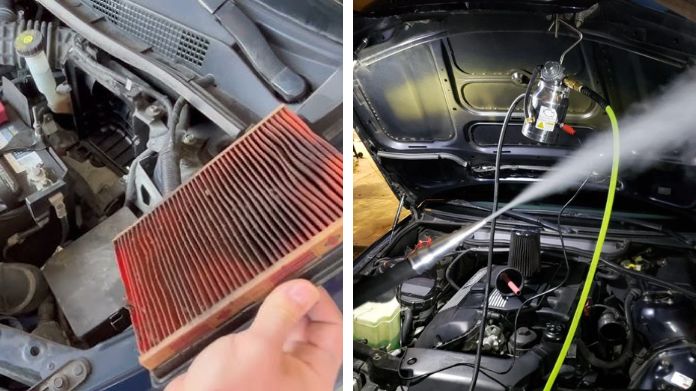 A clogged or filthy air filter might interrupt the air-fuel combination, so change it as needed. Check for vacuum leaks by listening for hissing noises or performing a smoke test.
A clogged or filthy air filter might interrupt the air-fuel combination, so change it as needed. Check for vacuum leaks by listening for hissing noises or performing a smoke test.
A faulty mass airflow sensor might also result in misfires. Clean or replace it as necessary to preserve optimal air-fuel balance.
5. Test Compression Levels
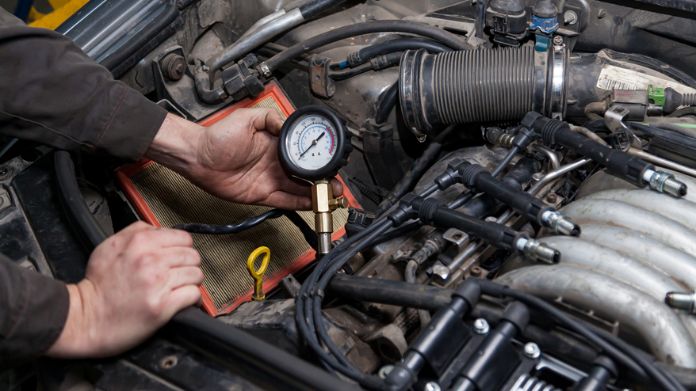 If you’re dealing with low compression, it’s definitely something to take seriously. You’ll want to grab a compression tester and check the pressure in each cylinder.
If you’re dealing with low compression, it’s definitely something to take seriously. You’ll want to grab a compression tester and check the pressure in each cylinder.
If one or more cylinders have low pressure, it could mean a few things: maybe the piston rings are worn out, there’s a valve issue, or the head gasket might be blown. Either way, these problems usually need a mechanic to fix them properly.
6. Inspect Timing Components
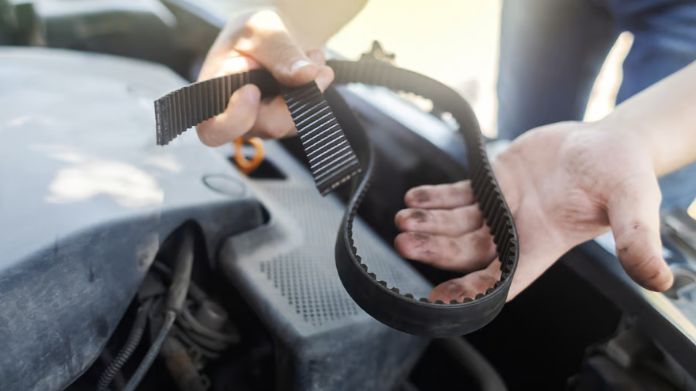 Your engine may misfire if the timing is incorrect, which is never enjoyable. Checking to see whether your timing belt or chain is worn out or a little loose is a smart idea.
Your engine may misfire if the timing is incorrect, which is never enjoyable. Checking to see whether your timing belt or chain is worn out or a little loose is a smart idea.
Don’t hesitate too long to have it replaced if it appears to be time. Timing is crucial because it ensures that the spark plugs ignite at the precise moment they should, which maintains the smooth operation of your engine.
7. Update Software
 Misfires can occasionally occur as a result of flaws or obsolete software in your engine control unit (ECU). If so, it would be wise to see your technician or dealership to check for any available software upgrades.
Misfires can occasionally occur as a result of flaws or obsolete software in your engine control unit (ECU). If so, it would be wise to see your technician or dealership to check for any available software upgrades.
The misfire issue could be resolved with these upgrades, which can also improve engine performance and address any other problems.
Preventing Engine Misfires
Prevention is always better than cure. Here are some tips to keep your engine running smoothly:
- Stick to Your Maintenance Schedule: Regularly replace spark plugs, ignition coils, and filters as recommended by your car’s manufacturer.
- Use Quality Fuel: Cheap or contaminated fuel can cause buildup in your engine over time. Opt for high-quality fuel whenever possible.
- Keep Sensors Clean: Periodically clean or replace sensors like the mass airflow sensor and oxygen sensor to ensure accurate readings.
- Address Issues Promptly: Don’t ignore warning lights or unusual engine behavior. Small problems can quickly escalate if left unchecked.
When to See a Professional?
While some misfire issues may be resolved at home, some require professional assistance. It’s time to consult a trustworthy specialist if you’ve tried the fundamentals and the issue persists.
In the long term, they will save you time and money since they have the knowledge and expertise to identify and fix complex problems.
Final Thoughts
Although an engine misfire might be annoying, it becomes less frightening when you know what causes it and how to fix it.
Whether the issue is as simple as replacing a spark plug or as complicated as low compression, taking care of it now can prevent more serious problems later.
Keep up with regular maintenance, stay alert for warning signs, and don’t hesitate to seek professional help when needed. With a little effort, you’ll have your car running smoothly again in no time.

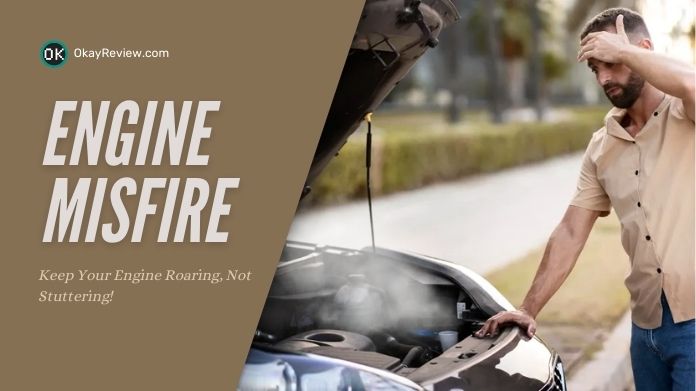
Very informative guide! Your step-by-step approach to diagnosing and fixing engine misfires is super helpful. I appreciate the breakdown of common causes and solutions, making it easier for car owners to troubleshoot the issue. Adding some preventive maintenance tips would make it even better.